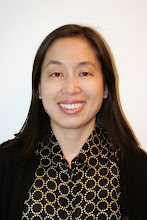Friday, August 17, 2007
The Meatrix
http://www.themeatrix1.com/
If you have not read Dominion: The Power of Man, the Suffering of Animals, and the Call to Mercy by Matthew Scully, I highly recommend his book! This book was named by The Atlantic Monthly as one of the ten best non-fiction works of 2002. Matthew Scully served until August 2004 as special assistant to the president and deputy director of presidential speechwriting. He worked for President George W. Bush a total of five years, including 18 months in the 2000 campaign, and was part of the team that drafted the President’s post-September 11th addresses and every major speech of the first term. Scully has also written for vice presidents Dick Cheney and Dan Quayle, presidential candidate Robert Dole, Arizona Governor Fife Symington, and the late Pennsylvania Gov. Robert P. Casey. A former literary editor of National Review, his work has appeared in The New York Times, The Wall Street Journal, The Washington Post, The Los Angeles Times, and The National Post of Canada, among other newspapers and magazines. Here is a link to an article Matthew Scully wrote about the seal massacres which take place in Canada:
http://www.matthewscully.com/canada_season_shame.htm
Here is something I found online while surfing. Actress Kate Hudson – nominee for the Academy Award – and hairstylist David Babaii are bringing out a cruelty free line of haircare products that will benefit the WildAid project http://www.wildaid.org/eng.asp?CID=1 The WildAid project works together with governments and communities to restore the wildlife of the earth. They are fighting illegal wildlife trade and are attempting to let threatened species grow in numbers again. No doubt about it that this is a very positive project. And the fact that the environment and wildlife are being helped with cruelty free hairline products makes this all the better. There is no need for animal testing to make cosmetics. Here is the link to the story:
http://openpr.com/news/22328.html
Finally, here is a link to an interesting site on animal rights:
http://www.lib.ncsu.edu/animalrights/
Tuesday, August 14, 2007
Marketing

I found a fun and interesting article by Robert Warren which explains some of the different aspects of marketing. Here it is:
You're a woman and you see a handsome guy at a party. You go up to him and say, "I’m fantastic in bed.”
That’s Direct Marketing.
You’re at a party with a bunch of friends and see a handsome guy. One of your friends goes up to him and pointing at you says, “She’s fantastic in bed.”
That’s Advertising.
You see a handsome guy at a party. You go up to him and get his telephone number. The next day you call and say, “Hi, I’m fantastic in bed.”
That’s Telemarketing.
You’re at a party and see a handsome guy. You get up and straighten your dress. You walk up to him and pour him a drink. You say, “May I,” and reach up to straighten his tie brushing your breast lightly against his arm, and then say, “By the way, I’m fantastic in bed.”
That’s Public Relations.
You’re at a party and see a handsome guy. He walks up to you and says, “I hear you’re fantastic in bed.”
That’s Brand Recognition.
You’re at a party and see a handsome guy. You talk him into going home with your friend.
That’s a Sales Rep.
Your friend can’t satisfy him, so he calls you.
That’s Tech Support.
You’re on your way to a party when you realize there could be handsome men in all these houses you’re passing. So you climb onto the roof of one situated toward the center and shout at the top of your lungs, “I’m fantastic in bed!”
That’s Junk Mail.
Friday, August 3, 2007
Managing Up: Your Parents
She went on with her personal story. “After my last course with you, as you suggested, I asked my daughter, ‘What can I do to be a better mother?’ We had a wonderful discussion. Then I thought, why not call my mother? I called and asked her, ‘What can I do to be a better daughter?’ Her mother replied, “Now that Dad is dead, I live all alone. Every day I walk up that long drive to go to the mailbox. Almost every day there is nothing in the mailbox. This makes me feel very lonely. It would mean so much to me if you could just send me some cards, or pictures, or notes—so that when I walk to the mailbox there will be a little something inside.” So the woman started sending cards, pictures, and notes to her mother. What did that cost her? Nothing. What did it mean to her mother? Everything.
So now Goldsmith includes this woman’s story in almost every class he teaches. He suggests that if you have parents who are still alive, please call them and ask, ‘What can I do to be a better son or daughter?’ Your colleagues at work are very important. Your parents are even more important—and you may not have that much time.” I have a friend who lives in Hawaii. When his parents lived in California, he called them every single day—even when he was on vacation—because as he told me, “he never knew when they were going to pass away, so he wanted to make sure that he had the chance to speak to them as often as possible while they were still alive.” His mother passed away a few years ago and now his father lives with him in Hawaii.
So if your mother or father is still alive, ask them: “What can I do to be a better son or daughter?” This is good advice for three reasons:
1) It is good for them. Even if they say, “There is nothing you can do to be a better son or daughter,” they will be happy that you cared enough to ask.
2) It is good for you. The No. 1 regret that children have when their parents die is: “Why didn’t I let them know how much I appreciated all that they did for me?” Show how much you care before it is too late. Later on, you will be grateful that you did.
3) If you have children, asking your parent(s) how you can be a better child is good for your children too. You know that old person—your parent—whom you are calling on the phone? In an incredibly short period of time, you are going to be that old person. Do you want your children to call you? Remember, their understanding of our values does not come from what we say; it comes from what we do.
Sources: “Managing Up: Your Parents” BusinessWeek Online (July 31, 2007)
http://www.marshallgoldsmithlibrary.com/
Thursday, August 2, 2007
Teach Your Kids to Find Work They Love
So I thought about switching my major from biology to psychology, but my parents were dead set against that major because they thought it was frivolous and impractical. That is how I ended up majoring in English instead because I have always loved to read and write.
My parents played a heavy hand in deciding which college I should attend. Even though I gained admission to the University of Michigan (my first choice college), my parents talked me into attending Indiana University instead so I would be closer to home. Now, that I have an 11-year-old son, I will let him make his own decisions on which college to attend and what to major in.
Sue Shellenbarger, the author of the article in today’s Wall Street Journal, described her career path as an Etch-A-Sketch doodle which I could also use to describe my rather circuitous career paths. I moved from financial services to the travel industry to early childhood education, then back to financial services again.
Would I have done things differently knowing what I know now? Definitely! I would have attended the University of Michigan instead of Indiana University (although I received a great education at IU) and I would have probably doubled majored in psychology and English. I also would not have flip flopped as much as I have, but instead settled on one career path and remained there. Having said that, all the flip flops I made have enriched my life and given me valuable learning experiences that I probably would not have gained otherwise.
Dr. Jaye Roseborough, executive director of career services for Middlebury College in Vermont, described the “doctor-lawyer-teacher-banker syndrome” where students try to fit themselves into one of a series of career choices as defined by others, rather than using their interests to guide them in exploring the outside world. Clearly, when I was in college and even after I graduated, I fell into that syndrome.
The advice Dr. Roseborough gives to parents who are advising their children on career choices is to “talk about what’s of interest to them, and how important it is to be happy in what you do. Ask how they envision spending their time. The activities required by a job must be a way you really like to behave. What kind of problems do they like to solve? Explain that many people change careers multiple times. And tell stories about how you fell in love with your own work.”
My son is very good at drawing and announced to me one day that he would like to become an artist. My husband was aghast at the thought, but I don’t want to discourage his dreams. We’ll see what happens!



